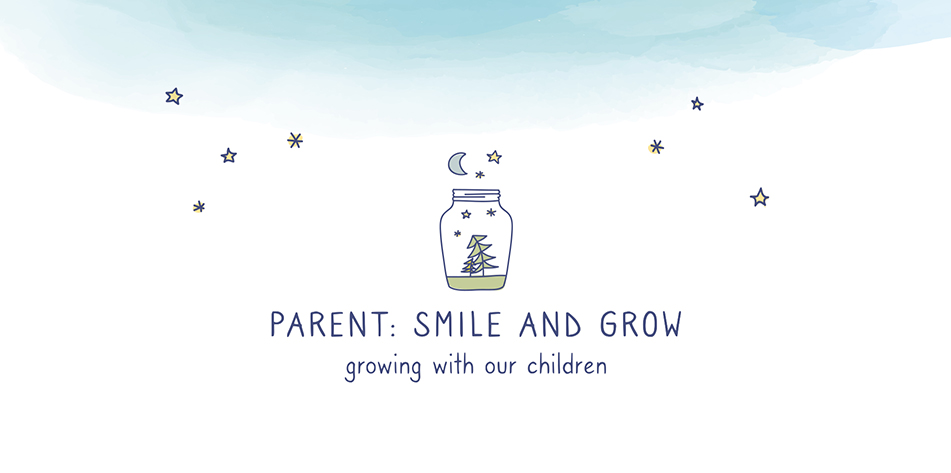“You can’t afford to make mistakes”; “If you don’t put a lot of effort, you’ll never be able to do anything” and also “Stop wasting your time!” What do these sentences have in common? And what does they have to do with toxic stress and high cortisol? We might be living with these recorded messages and the related chronic stress for so long, that we don’t see them any more. We don’t connect them to when we forget for the umpteenth time the keys inside the door of the house; to when we cry because we missed the bus; Or when we get breathless after another loud NO! from our 3-year-old boy. Can you find the resources you need to get better within yourself? Spot on high cortisol and toxic stress, and on one of the ways we secretly cultivate them..

Table of Contents
Toxic stress, me? Nope
A few years ago I found myself in a vortex. One of those times when everything goes fast, and you seem to have everything under control. In fact, you’re pretty excited: “Look how well I can manage this challenge, and all the change! I’m a superhero!” (Ah no, that’s my son’s excuse).
My husband had started a new job abroad, and I was alone with two small children, working full time. At work we were launching a new project, in which I wanted to give the best-because I was beginning to feel cramped in the marginal role I had.
I didn’t want to show my fatigue nor give in. So, I kept doing sports, organizing weekend trips, seeing friends.. Without noticing that I was neglecting myself. That I wasn’t sleeping enough. I was not resting, I was eating too little. The race was such that I didn’t even have time to notice the signals.
Then, a colleague of mine suddenly stopped coming to the office. Burn-out. We examined her case. What happened? And yet I could not connect her symptoms to mine. I often got sick, sore throat that left me without a voice but enough strength to come to work. Furthermore, I lost patience so easily, I was susceptible. As if nothing would make me laugh any more.
I had to write my schedule, or I risked forgetting everything after a few minutes. I, who have an iron memory and register the agenda in my head.
Now, at a distance of time, it all seems so obvious!
Effects of high cortisol and toxic stress in our brain
Toxic stress. How come? What was going on?
We have seen what happens to our bodies when an event throws us off balance. But what happens in our brains when the level of cortisol remains high (chronic toxic stress)?
Cortisol receptors stop functioning correctly: they make the hippocampus (part of the brain linked to memory formation) less sensitive; and therefore less able to give the hypothalamus the signal to stop cortisol’s production.
After a while, the hippocampus starts to work poorly – and since it is the hippocampus that is the center of memory and learning, we start forgetting things.
Meanwhile, the amygdala is also overstimulated by this excess production, and it records a constant state of alert.
Only the prefrontal cortex could keep everything under control, but when the situation lasts for too long, many of the neurotransmitters do not hold; it is at this point that some cells may start to die.
In short, a vicious circle installs.

Do you know when you’re so tired that everything and everyone get on your nerves? When you get to the point that you just want to be by yourself because you feel like you can’t handle the contact with other people?
That’s how an excessive period of toxic stress and high cortisol translates into “thoughts” inside your head.
Parent, should you worry about toxic stress
Isn’t it fascinating how all these chemical reactions translate and originate from our thoughts?
Because don’t you forget: how much you stress solely depends on your perception of an event. How easy is it to control our thoughts and interpretations?
I would like to emphasize here, once again, why I do insist with this topic. Why should you, parent, learn more about stress and train yourself to manage it?
-
Children can get stressed too. For reasons other than yours, of course.. But your reactions affect a lot the way your children’s brains form and how resilient they will be as adults (i.e. how much they will be able to adapt to different events that will disrupt their balances).
-
Stressed out parents = stressed out children. You know how hard it can be, sometimes, to keep calm and try to solve your kid’s crises with empathy. Whether it is the phase of 18-months-rebellion, a reaction at the beginning of elementary school or the adolescent confrontation, the relationship with your kids requires lot of energy, attention and presence. It might get difficult when you are relaxing at the beach, let alone if for months cortisol is looting the brain cells.
With or without children, everyone is pleased to have an efficient but not overloaded mind, and the feeling of “riding the wave” with full mastery, right?
Connected : can you find a life balance among your multiple roles?
If conflict is a source of stress for you, take advantage of this poster!
What can you do to fight toxic stress, high cortisol, and negative thoughts
We can do little or nothing to change external factors. If we have to cross the center of New York to go to work every day, we can hardly hope to solve the traffic problems and get in 10 minutes by car to our desk. Not to mention more serious events like the illness of a loved one.
We can, however, take care of everything else, of those internal factors related to our perception of things.
Phrases that condition our toxic stress level
We all have unconscious beliefs (or recorded messages) that we carry from our childhood. You can read an entire article about limiting beliefs, which is a concept taken from transactional analysis in psychology.

Let’s see how transforming some of these phrases (that you repeat without realizing it) can help you reduce cortisol and toxic stress.
#1: “Hurry up”!
The number of times you repeat this phrase to your children is directly proportional to how much “efficiency” is important to you.
The problem with this sentence?
-
You measure your value through the number of actions you can accomplish. I’m worthy, I’m important, only if I can do everything in the time available.
-
It doesn’t leave room for mistakes, reflection, and learning.
You know for instance how so many times you do things for your children so that you can be faster? Like tying shoes, putting clothes on, etc. But that prevents them from learning, practicing and feeling self-confident.
Why do you repeat that sentence?
The implicit message is “you must be able to do EVERYTHING in the time you have available”
This tells the child eager to please that “I must hurry to be good.”
Growing up, this thought translates into the conviction: “I can’t make it if I don’t hurry”, conviction that we often pour on others in the form of judgments. The classic “You’re too slow!”
You have the right to take your time: To do what you choose to do; and also to do nothing. You’re worthy regardless of how many things you do, or how much time you take.
#2: “You have to commit”
This phrase from apparent innocence can reveal an inexhaustible source of high cortisol.
Why?
-
You measure your value through your fatigue and effort. I’m worthy, I’m important, only if I struggle, if I suffer.
-
It diminishes any result obtained in activities that give you pleasure, when you do something for passion and with little effort.
-
Suffering becomes inevitable to achieve success
With kids, we see the repercussions of this sentence every day. Take homework for instance. We’ve all grown up believing that learning while having fun is not really studying; That if you want to learn, you have to sweat and spend long hours sitting at your desk. (Although more and more researches show just the opposite..)
Why do you think that sentence?
The implicit message is “who commits himself to the end always wins”
And so we grow up thinking that “I have to struggle to be good.”
Internally, we repeat ourselves “you can Do Better” (which, for goodness sake, can also be true in certain cases) and we come to judge others based on the amount of their work.
You can do it, and easily. Your value is not measured by the efforts you make.
#3: “Think of others”
This phrase from apparent innocence can reveal an inexhaustible source of high cortisol.
Why?
-
You measure your value through your sacrifices.
-
I’m worthy only if I sacrifice and put my own needs after others’.
As parents, this thought is extremely dangerous. We tend to avoid any suffering and disappointment to our children, we try to meet all their needs forgetting our own.
But this does not teach children to do for themselves, and to experience successes and failures that make them grow.
Not only that. We grew up believing that those who take care of themselves, are selfish. There is a subtle difference though, between taking care of oneself in order to be able to care for others, and forgetting others completely.
If we don’t know how to take care of ourselves, we will hardly have the energy to be able to care for those close to us, including children.
The implicit message is “If I don’t sacrifice myself at least a little, it means I’m a bad person, I’m selfish”
The risk here is judging others on this basis:
“If you really love me, you have to make me happy and do what I ask you/ what I expect from you.”
You have the right to take care of yourself, to please yourself, to love yourself.
#4: “Be Strong”
This section and the next one especially concern men, who often grow up feeling the pressure to be strong.
It gets therefore more difficult, especially in certain contexts, to show feelings and weaknesses :
-
Showing your vulnerability is seen as a problem.
-
I’m only worth it if I’m all in one piece. Every emotional manifestation is to be banished.
It becomes a race : to be the tough guy, the strongest, the one who never loses control.
Always keeping your feelings in your heart is undoubtedly a factor of stress. It’s like being a pressure cooker ready to burst..
The risk is judging others, and our children first, when they take the trouble to show their emotions and fragility.
“Stop crying! You have to control yourself, you’re too emotional! “
This happens because the functionality/content marked as “Google Youtube” uses cookies that you choosed to keep disabled. In order to view this content or use this functionality, please enable cookies: click here to open your cookie preferences.
You have the right to be yourself even by showing your vulnerability, your emotions and your feelings.
Connected : the role of emotions in the relationship with your children
#5: “Be perfect”
The icing on the cake!
Can you see the link between perfectionism and self-produced stress? Perfectionism can be insinuating in so many areas of our lives:
-
At work, of course;
-
in how we get dressed;
-
how orderly we keep the house;
-
In the expectations that we put on our kids.
The characteristics of this way of thinking?
-
You measure your worth through the control you have on your life.
-
Mistakes are a weakness
And here we are again doing things in place of our children, so that everything is as perfect as we want.
Here we are, taking on responsibilities that aren’t ours.
Finally, here we are “rewarding” the result instead of the initiative. “I must be perfect to prove my worth”
We judge those who do not abide by our standards of perfection. And, we’re hardly ever satisfied. It’s never good enough.
You have the right to mistakes.
Connected: iwant to raise children with a good self-esteem ? work on yours!
Keeping toxic stress at bay: our share of responsibility
If you recognize the symptoms of toxic stress.. Stop. Hold on.
The first step is to accept that we have a part of responsibility, large or small, in setting boundaries. In controlling our perception.
Identifying those unconscious beliefs that make us sometimes act against our well-being is the first step to.. Limit cortisol peaks, without recourse to drugs or drastic solutions!
We can’t control everything, of course. But sometimes, it’s the little things that make a difference.
Resources and insights
Note: These further readings come either from the books I have personally loved, or from the readings that inspire me and/ or are on my wish list. The links to Amazon.com or amazon.co.uk are affiliates: it means that if you click and decide to make a purchase, I perceive a small commission at no extra cost to you.
-
“The Unlimited Self: Destroy Limiting Beliefs, Uncover Inner Greatness, and Live the Good Life” (UK) brings you a step further into getting conscious about what holds you back and how to shift your mindset to move forward. (here’s the US edition)
-
“Why love matters” (UK) is a very useful book for any parent. (here’s the US edition) It is a bit technical, but it illustrates very well the interaction between our reactions and our children’s brain
- The effects of toxic stress on the brain & the body



very nice article about the cortisol! Really helpful
Thank you! I’m so glad you’ve found it useful!